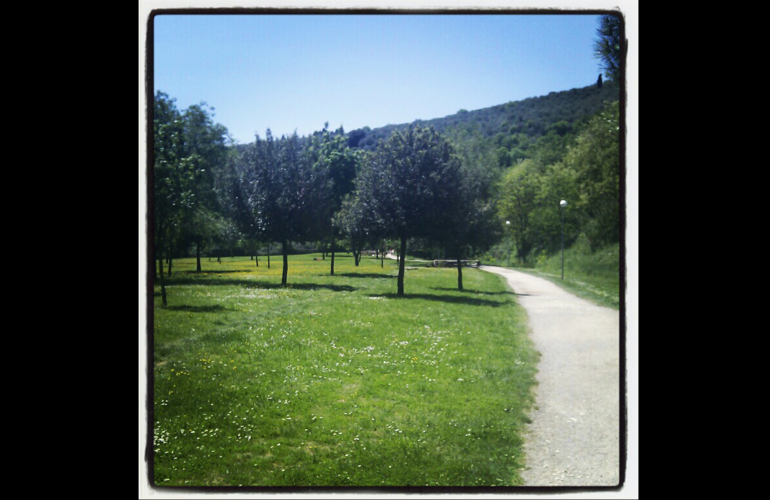May 1st is Labor Day here in Italy, and in order to fully celebrate its freedom to work, the nation exercised its freedom to take off from work starting last Thursday evening. Folks, we’re talking five full days of weekend. Five! Traditionally, one of my favorite things about any given weekend is the opportunity it affords me to catch up on unfinished projects, but this time, my body took a calculating look at the swath of free time ahead, mumbled “It’s about time,” and punched out. I don’t know how many hours I slept over the last few days, but they never seemed like quite enough. While the rest of the country picnicked, I passed out. They shopped, I snoozed. They went camping, I went comatose. You get the idea. At any rate, this morning, its gray light and calendar flip equally disorienting, is probably as good a time as any to accept that I’m in recovery mode.
To fully understand the issue that’s had me reeling lately, you’d have to peek among the pages of my childhood journals. The back story is all there, even if I couldn’t articulate it at the time. You see, one of the most basic tenets of my family’s fundamentalist lifestyle was that children were inferior. Outwardly, our movement held up Bible verses labeling children as a gift, but more quietly and much more pervasively, it taught that children were little sin-bred decepticons with no intrinsic worth until they were broken in. A child’s mind was a thing to be shaped, not acknowledged. Growing up as a child of that movement, I had little right to my own opinions, and if my perspective ever differed from an adult’s, I was wrong, automatically and without question.
There was a personal element to it as well. Because I was the oldest child in our family and the one whose independent streak clashed most visibly against our movement’s ideals, I needed to be put down more decisively than most. Whereas other children in our lifestyle had at least the hierarchy of age in their favor, my words could be invalidated by those of younger siblings. I can vividly remember being forbidden to tell my side of a story because it wouldn’t count anyway. I was guilty until proven innocent, and my proof was often disqualified unheard.
It’s lingered with me long, that poisoned whisper from my past: Your opinions do not matter. You have nothing worth saying. No one wants to hear what you think. No one will believe you anyway. Safely ensconced in adulthood, I see the lie for what it is, and I win another victory against it every day that I post an entry here or submit an article or talk honestly with a friend. However, some hurts are too powerful to simply keel over and die; instead, they lie dormant until a specific trigger jolts them back to life.
That trigger came a couple of weeks ago.
I had been asked for my help in a situation that quickly turned more complicated than anyone had expected. As weeks went by, the situation became increasingly unmanageable, and I finally went to the party that had initially asked for my help to ask them for help. Their response came hurtling out of left field. Where I’d anticipated a brainstorming session, I was met by a flurry of emotional outbursts and unfounded accusations that continued for an hour unabated. The only reason I stayed, tears welling with each insult, was that I hoped the situation could be salvaged once the other party calmed down enough to listen to me. Then the trigger—They refused to hear my side of the story. They let me know they wouldn’t believe me, that my words were automatically invalid to them. The conversation was closed.
Your opinions do not matter. You have nothing worth saying. No one wants to hear what you think. No one will believe you anyway.
My panic attack was already gaining momentum by the time we said goodbye. An old current of pain jolted alive and coursed through my body like fire and ice, unbearably strong. The fresh pain of the other party’s words and the stress of the already-unmanageable situation crushed down on my head and lungs, and all oxygen vanished from the room at once. I don’t know how long it lasted before my sweet husband was able to calm my heart rate and restore feeling to my limbs; minutes turn into eternities when you can’t breathe, and I know we came close to an ER trip. I could no sooner control the panic than I could fly, but even in the worst of it, I understood how absurd it was to be having such an intense physical reaction to the evening’s conversation. As an adult, with both logic and a clear conscience on my side, I could have fought for myself or, even more easily, stepped away. No one had forced me to stay on the line, much less take the hurtful concepts to heart. Beyond that, I knew better than to believe the insidious lies used to control me as a child, so how could I be falling apart over them? How could I have let a few misguided words yank my stability out from under me?
I guess the truth of it is that I’m not fearless, nor am I immune. Some small part of my heart is willing to believe that the voices from my past are the right ones in a world of attractive deception and that no matter what sort of façade I build for myself, others will still be able to sense my worthlessness. This small part of my heart had found confirmation in the unkind things said to me in that trigger-quick conversation, and so even once my breath returned, I kept my mouth shut and my feelings on ice for the better part of a week. I felt like my voice had been stolen and only a ghost of a woman remained.
The feeling of bereavement didn’t last, of course, and as my confidence began to trickle back, I started drafting a letter that I hoped would bring some resolution. However, each version I wrote struck me as too confrontational, so I kept gentling it down until I had written a full letter of apology. From me. To the people who had hurt me. For the sole purpose of convincing them to have a better opinion of me in the future. I think I was hoping the apology would count toward me as turn-the-other-cheek karma, a sort of magic spell for reconciliation and happiness and divine brownie points all around, but reading back over those unctuous paragraphs in my own handwriting was like catching myself with tongue out, inches from a dirty boot. Sure, someone else may have triggered my emotional beast, but here I was keeping it alive, perpetuating the lies. Me.
Dear Lord. Was I still so willing to believe myself a cosmic mistake? Was I really so eager to discredit all the love and encouragement shown to me throughout the years in favor of the soul-killing ideologies I thought I’d escaped?
I didn’t send the letter. As much as I wanted to make peace with the situation, I recognized that I wasn’t doing anyone a favor by patronizing a lie, and I made myself promise that I would respond to my accusers face to face once the time was right, once my feet were planted firmly enough in grace to lavish it on all of us. And so I wait in recovery mode. This is such a passive process that the insistent, sleep-for-five-days bout of exhaustion caught me off guard, but I guess it’s not the easiest thing in the world to let go of an identity-lie.
This process has a lot in common with running, actually. I’ve started up again, and for as slowly as I move and as embarrassingly little endurance as I have, I’m proud of my breathing. It’s been my one athletic success so far, learning to fill my lungs to capacity and then release it all, step after step. My natural inclination is to hold myself in and conserve breath under an airtight diaphragm, but as I run taut against the wind and feel increasingly convinced I’m dying, panic clamps down on my lungs like a desperate hoarder and I finish the workout doubled over. Attractive, let me tell you.
I’m learning about letting go, though, about trusting that each new breath will be waiting within reach and that I’ll have the energy for each new step as it comes. Relaxing into the process doesn’t come naturally to me, so I’m doing the clumsy beginner routine right now both in running and in living—inhale and exhale, acknowledge and release, listen and move on, grace and more grace. The rhythm doesn’t come easily yet, but time is kind, and at least I can rest assured that if my tongue sticks out these days, it’s only in concentration.


